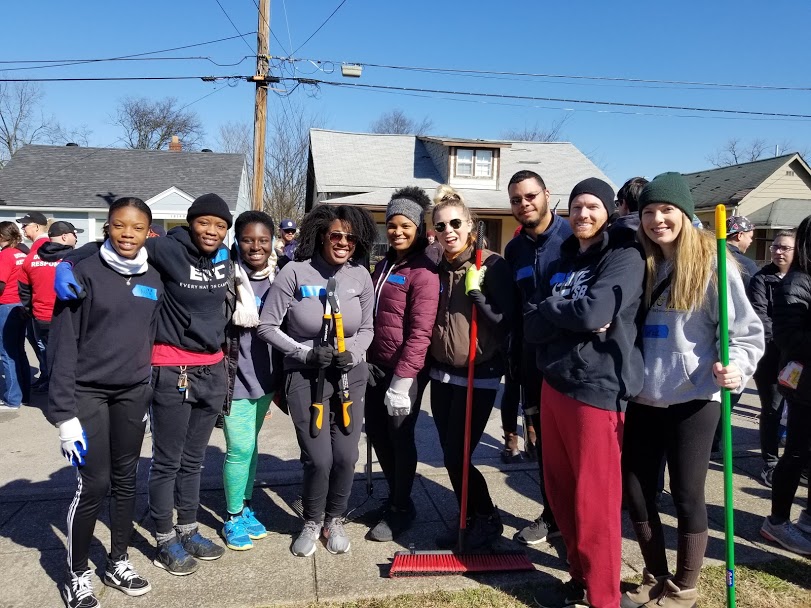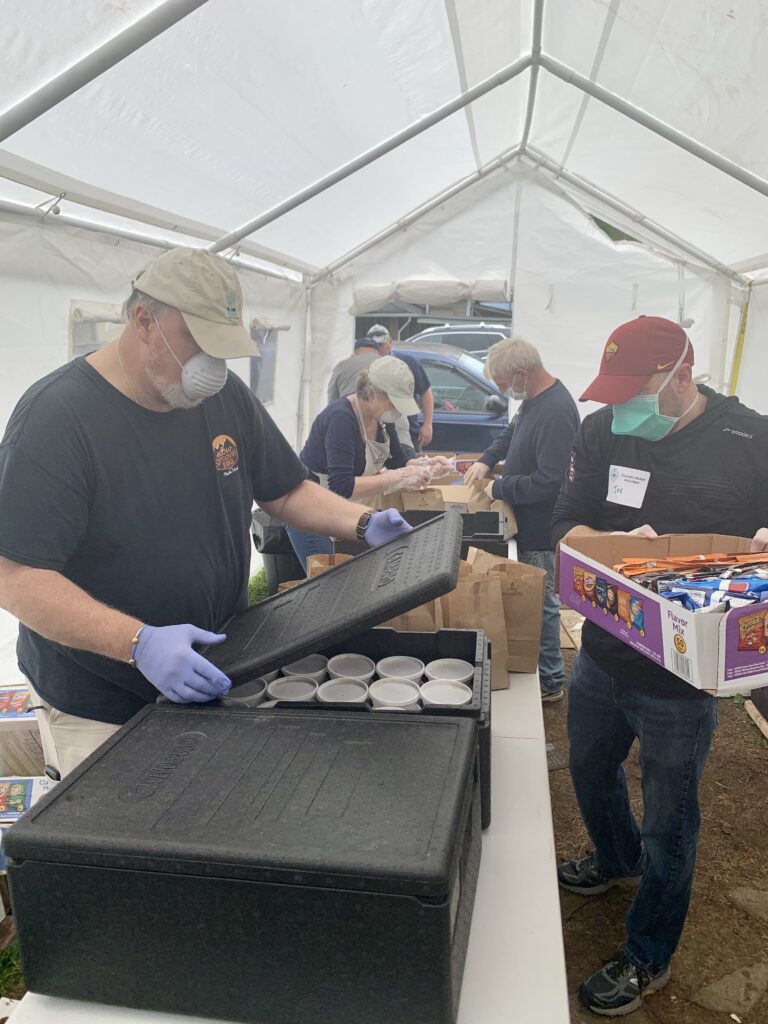UPDATED 03/01: The following story includes original reporting, as well as updated information provided by CFMT and Project Connect Nashville’s Co-Founder and Director of Development and Volunteers, Michell Murdock.
Project Connect Nashville was founded in 2013 to bring hope to the hurting community of Madison (just a few minutes north of Nashville). Project Connect Nashville exists to help disconnected and vulnerable men, women, and their families build relationships with others who will encourage and guide them, providing assistance when needed, educating and equipping them for the challenges each day brings, and celebrating every victory along the way. They also seek to educate the church on poverty, connecting those who desire to serve with opportunities to connect with hurting people in their community.
Project Connect Nashville received $119,912 in grants to provide support for meal service and delivery, operated from Historic First Community Church on Knowles Avenue, for North Nashville resident impacted by the March 2020 tornadoes.
Like so many nonprofit organizations and groups throughout Middle Tennessee, their much-needed work helping the community relies on a steady bank of volunteers.
Such is the case at Madison-based Project Connect Nashville, which has been on the front lines of tornado relief and recovery in North Nashville — particularly food security — since deadly and destructive tornadoes ripped through Middle Tennessee in early March.
While tales of valor and derring-do occur during disaster, Project Connect Nashville had perhaps a less-dramatic but no less integral volunteer to deploy from the onset.
They had a volunteer with an accounting background. And reliable data means everything in a disaster, particularly in the early going.
Stephanie “Stephie” Goings, a musician and teacher by trade — this is Music City, after all — immediately began building a Google software program to feed a spreadsheet at 1 am, just moments after the tornado hit North Nashville.

By dawn’s early light, she was busy canvassing the neighborhood gathering information that would help Project Connect Nashville and others survey tornado survivors so they could better fill their hunger needs.
“When I’m in the zone, I power through,” says Stephie, recalling the long days and nights spent refining the survey.
In particular, she and her Project Connect Nashville colleagues were able to ascertain that the many elderly and disable residents in the neighborhood would benefit from continued meal service. Also, in some cases, multiple families were living under one roof, further emphasizing targeted food security needs.
The organization had an empowering impact, “and people come back and tell us that,” Stephie says. “Seeing people regularly, and learning people’s names, and learning people’s stories, and treating people as friends — the things that PCN does — helped us serve. “We asked lots of personal questions and got to know people,” she continues, “and people have noticed.”

Michelle Murdock, Development and Volunteer Director for Project Connect Nashville, recently answered questions from The Community Foundation.
CFMT: How are you using, or planning to use, the tornado emergency response grant or grants?
PCN: The funds have been used to assist the neighbors in North Nashville in a number of ways. Following the storm, we have had two staff onsite full time helping to meet the needs of the community in a facility that we rent.
In partnership with other organizations, we have provided and delivered hot meals. We have provided emergency housing for families impacted by the tornado. We have provided volunteer opportunities for the community to serve in meaningful ways directly after the tornado and continue to do so.
CFMT: In light of changes in how we all live and work due to the COVID-19 coronavirus pandemic, how is your organization managing to work in supporting tornado relief and recovery efforts? What challenges have you all overcome or are overcoming?
PCN: We are continuing to follow what the city advises and are being diligent in our safety measures. Some of the challenges we currently face are getting new volunteers. We are accustomed to seeing lots of volunteers, and because of the uptick in cases in the Nashville area, people are being a little more cautious and staying home.
Many faithful volunteers continue to show up and allow us to continue to serve, but as the pandemic worsens, more help is needed.

CFMT: In terms of tornado relief and recovery, what needs remain in your community or communities?
PCN: There are a number of churches in the community that provide food boxes on a regular basis, which is great, so we don’t see that as a huge need. What seems to be missing (and what people request often) is essential items such as toilet paper, paper towels, cleaning items and hygiene products.
Many in the community need their homes to be repaired, as a number are still tarped. There are at least two families that have had their homes demolished, and they are choosing to live on their land in a tent. Staff feel like this is because they are fearful they are going to lose the land.
CFMT: Define the word “hope” for you and your organization.
PCN: Hope is a word we use often at Project Connect Nashville. In fact, two things we would want all of our clients to experience is hope and stability. People living in poverty are completely overwhelmed by the circumstances of the day. (It’s important to note that when we speak of poverty, we don’t speak about it just in terms of financial, but brokenness.)
The families are so overwhelmed that they are not able to imagine how things could be different tomorrow. How things could actually be better tomorrow. All of our educational programming gets them to start thinking differently. They learn about budgeting and saving for the future. They learn how to get a job — and most importantly, KEEP that job. Hope is the opposite of poverty.
Follow up with Michelle Murdock, Co-Founder and Director of Development and Volunteers, Project Connect Nashville
CFMT: From your organization’s perspective, what progress has been made since the March 2020 tornadoes, and what more still needs to be done for survivors?
PCN: The victims of the tornadoes are in need of having their roofs re-tarped and general cleanup. We are working on a one-year anniversary event on March 6 to engage volunteers with some of these tasks.
Of course, the need is for repairs to be done as well, but I know we’re all working as fast as we can!
Learn more about Project Connect Nashville
Online at www.projectconnectnashville.org.